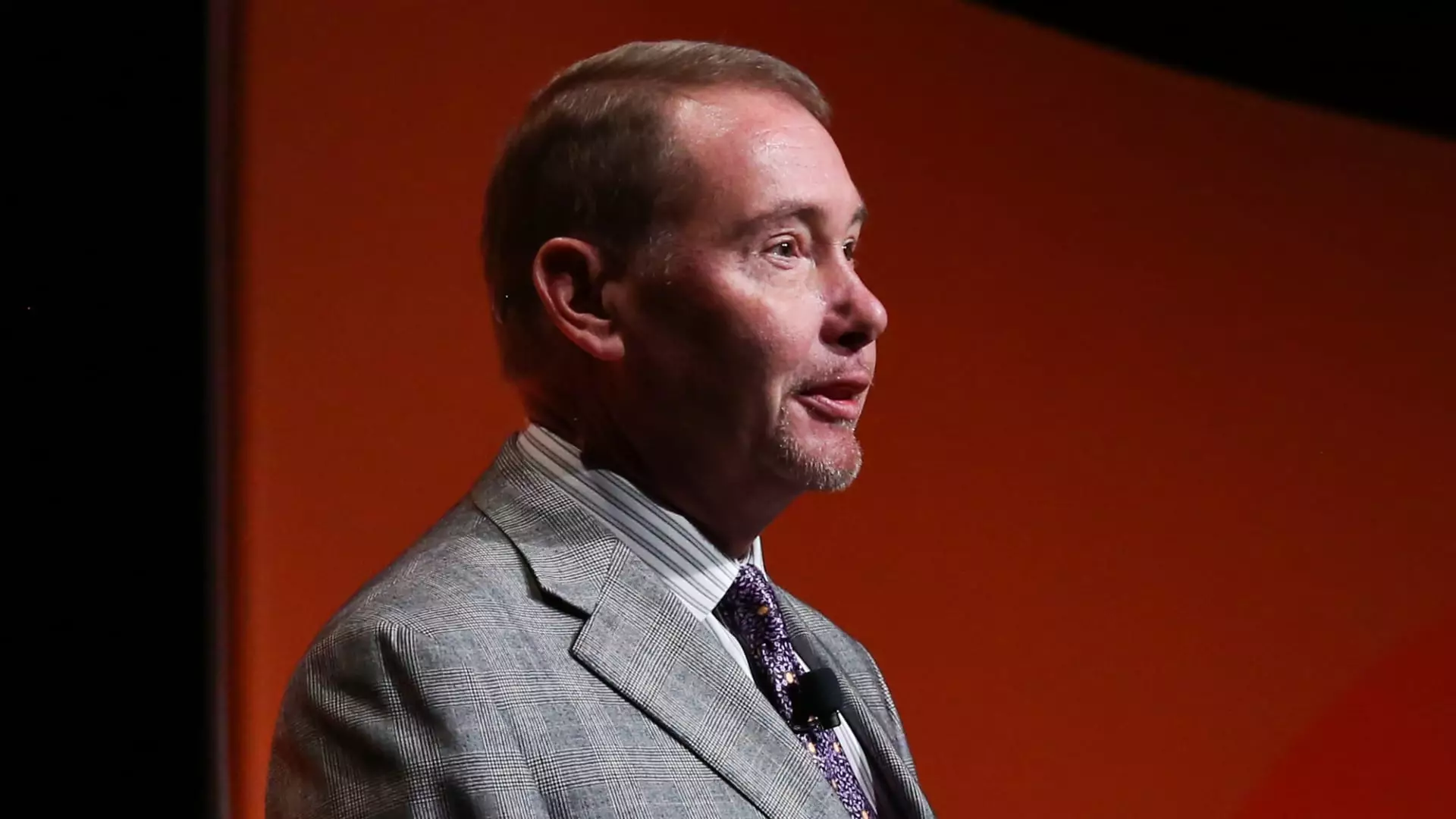Jeffrey Gundlach, the CEO of DoubleLine Capital and a prominent voice in the investment community, has expressed significant concerns regarding the Federal Reserve’s (Fed) approach to handling the economy. In a recent webcast, he likened the Fed’s decision-making process to that of a clumsy character from a cartoon, suggesting that they have been reactive rather than strategic. Gundlach’s assessment highlights the tension between immediate economic indicators and long-term fiscal policy, a crucial dichotomy that policymakers must navigate carefully.
As Gundlach pointed out, the Federal Reserve has been influenced by recent fluctuations in the consumer price index (CPI). This index showed a month-over-month increase of 0.4%, bringing the annual inflation rate to 2.9%. While this figure lies within a manageable range, it underscores the challenges the Fed faces in reaching its 2% inflation target. By focusing too heavily on monthly data, Gundlach argues, the Fed risks falling into a pattern of short-termism—adjusting its strategies impulsively without a coherent long-term plan.
The underlying issue, as highlighted by Gundlach, is the Fed’s apparent oscillation between aggressive rate cuts and a more cautious stance, particularly as recent projections suggest a mere two rate cuts for 2025, down from earlier forecasts. This inconsistency leaves markets uncertain and can lead to volatility, with traders shifting from expectations of aggressive monetary easing to a more restrained outlook.
The consequences of this short-term thinking are multifaceted. First, with increasing inflationary pressures, the Fed may find itself in a bind where it must choose between stimulating growth or curtailing inflation. This tension can create an unpredictable environment for investors and businesses alike, who rely on stable economic policies for long-term planning.
Moreover, Gundlach’s comments reflect a broader concern that central banks, not just the Fed, should cultivate a more strategic and comprehensive approach in their policies. The global economy is faced with systemic changes driven by technology, demographics, and geopolitical tensions. As such, monetary policy should evolve beyond reactive measures, requiring a concerted effort to anticipate and mitigate potential challenges before they escalate.
As we look to the future, Gundlach’s insights call for a reassessment of the Fed’s modus operandi. Instead of being caught in a reactionary cycle driven by volatile economic data, the Central Bank must strive for a more proactive and strategic approach. This involves not only setting realistic targets for inflation but also integrating broader economic indicators into their decision-making process.
Jeffrey Gundlach’s warnings highlight a critical juncture for the Federal Reserve. As they navigate the complexities of an evolving economic landscape, they must resist the urge to respond hastily to short-term fluctuations and instead adopt a forward-thinking approach that prioritizes long-term stability and growth. Only then can the Fed regain its footing and effectively foster a favorable economic environment.

